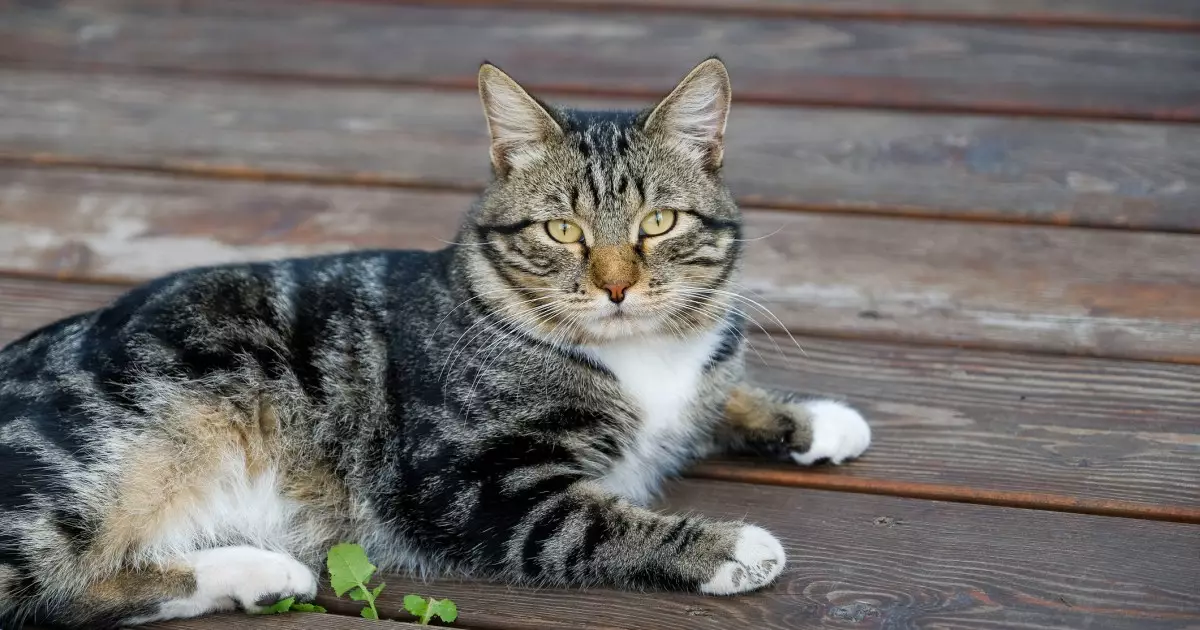The unexpected arrival of a new hybrid coronavirus variant, designated F-CoV-23, has generated significant concern within veterinary and feline health communities in the United Kingdom. Originally identified in Cyprus, where it was linked to the tragic death of approximately 8,000 cats, this virus marks an alarming new chapter in the ongoing struggles pet owners face regarding infectious diseases. The initial case in the UK was detected in a cat that had been transported from Cyprus, stirring unease among experts who are racing to understand the implications of this contagious pathogen.
Scientists have classified F-CoV-23 as a genetically distinct hybrid derived from both feline and canine coronaviruses. Interestingly, researchers have been quick to clarify that F-CoV-23 is not related to COVID-19, which may offer some solace to worried cat owners. The manifestations of F-CoV-23 can be subtle, with many affected felines displaying no overt symptoms. However, symptoms such as lethargy and diarrhea have been noted in infected animals, complicating the diagnosis process and potentially delaying treatment.
One of the most troubling aspects of F-CoV-23 is its relation to feline infectious peritonitis (FIP). Roughly 10% of F-CoV-23 cases can evolve into FIP, a condition characterized by anemia, jaundice, and severe loss of appetite, often leading to death. The high mortality rate associated with FIP in untreated cases underscores the urgent need for awareness and proactive measures among cat owners and veterinarians alike.
The circumstances surrounding the crisis in Cyprus serve as a cautionary tale. Estimates indicate that the new variant was responsible for a staggering upsurge in feline mortality, potentially claiming over 300,000 lives. In response to the dire situation, authorities in Cyprus implemented measures that included the administration of human COVID treatments on infected cats. This unprecedented step reflects the severity of the outbreak and highlights the resourcefulness of veterinary professionals in combating this growing threat.
Research partnerships among the University of Edinburgh, the Royal Veterinary College, and the Cypriot government have unveiled alarming findings regarding the genetic makeup of the virus in the UK. The strain found in the UK shares the same genetic fingerprints as those identified in Cyprus. This correlation raises the possibility of the virus spreading further, a situation made more precarious by the ease of animal transportation in our increasingly interconnected world.
Despite the serious implications of the F-CoV-23 outbreak, veterinary experts maintain that the risk of widespread infection in the UK remains limited. A statement from faculty members at the Royal Veterinary College indicated that cats becoming infected is improbable unless there is direct contact with cats from Cyprus or if they themselves have traveled to the affected area. They further cautioned, however, that monitoring must continue in susceptible environments, such as catteries, veterinary practices, and shelters where multiple cats interact.
Moreover, while the current veterinary treatments like GS-441524 can reportedly assist in combatting FIP when administered early, the accessibility of such treatments is hindered by regulatory challenges. The UK has yet to authorize the use of human COVID therapies like remdesivir or molnupiravir in veterinary contexts, which leaves many caretakers and vets searching for alternative options amidst the growing threat.
As we grapple with the emergence of F-CoV-23, it becomes increasingly critical to prioritize education surrounding this coronavirus variant. Cat owners should remain vigilant but not overly alarmed, keeping in mind that regular monitoring and preventative care are invaluable. Ensuring that pet environments are safe, and that any unusual symptoms are promptly addressed, can play pivotal roles in maintaining feline health.
While the emergence of F-CoV-23 poses challenges, especially given its potentially fatal implications, proactive measures and continued research will be essential in safeguarding the wellbeing of feline populations. Collaboration among veterinary scientists, pet owners, and public health officials will be paramount in addressing this unfolding situation.


Leave a Reply